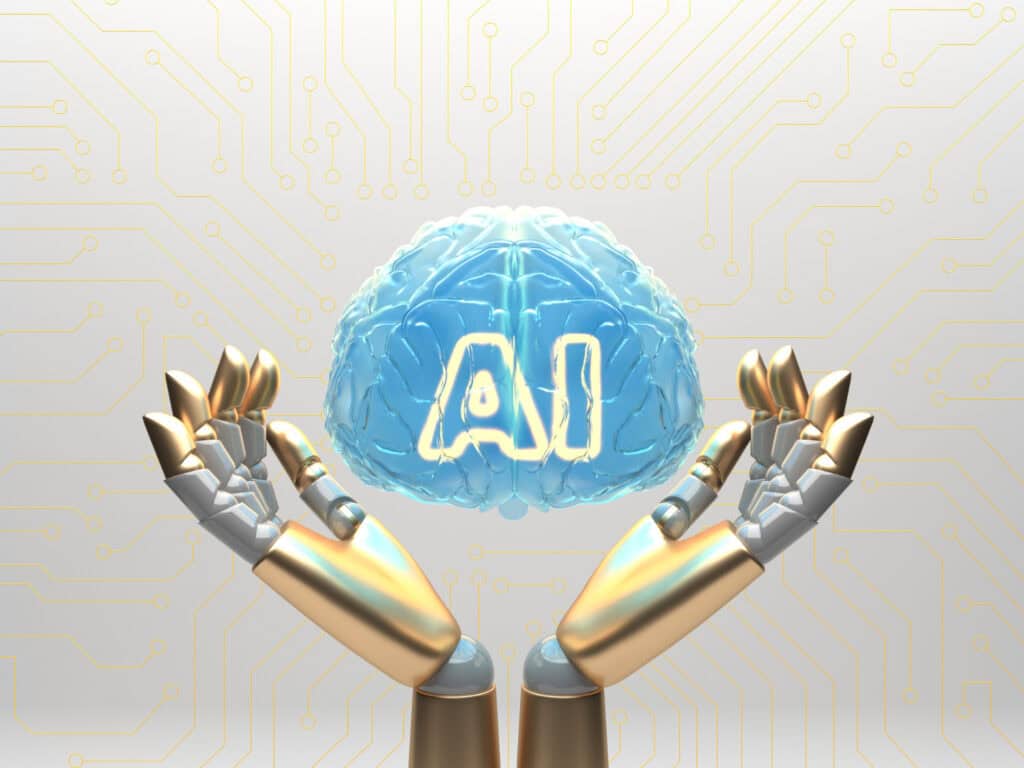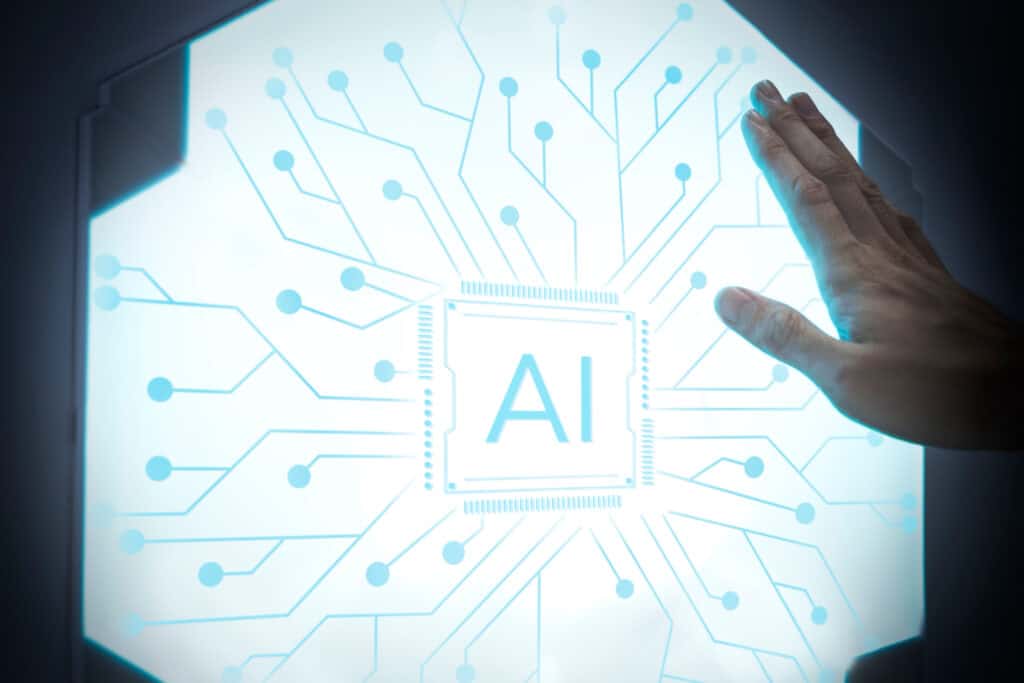SEO is experiencing a significant change, fueled by the swift progress in AI and machine learning. From customized search outcomes to more intelligent algorithms, AI is transforming the way companies and marketers tackle SEO. Let’s explore the impact of AI on SEO, emphasizing its revolutionary role and providing tips on effectively adopting machine learning algorithms.
Understanding the Role of AI in SEO
Artificial Intelligence has become an integral part of SEO, enabling search engines to process information more efficiently and deliver better results. AI-powered algorithms, such as Google’s RankBrain and BERT, analyze search queries in real-time, focusing on user intent rather than merely matching keywords.
Enhanced Keyword Research: Traditional keyword strategies are now complemented by AI tools like SEMrush and Ahrefs. These tools analyze vast amounts of data, identifying trending keywords and phrases that align with user behavior. Marketers can optimize their content based on insights generated by AI.
User Experience: AI evaluates user experience by monitoring metrics like click-through rates, bounce rates, and duration spent on a page. These insights assist search engines in ranking websites that offer value to users, rendering UX an essential element in contemporary SEO.
Predictive Analytics: AI-driven predictive analytics help marketers anticipate trends, adapt strategies, and maintain competitive advantages. By analyzing historical data, these tools forecast keyword performance and content relevance.
AI in SEO has significantly transformed our approach to search rankings, making flexibility essential for marketers. Grasping the subtleties of AI-powered algorithms helps companies stay noticeable and relevant in a progressively competitive online environment.

Machine Learning: The Backbone of Modern Search Algorithms
Machine learning, a subset of AI, powers the evolution of search algorithms. It allows search engines to learn and improve from user interactions without explicit programming. This dynamic approach ensures that search results are continually refined to meet user expectations.
Semantic Search: Machine learning algorithms interpret the context and meaning behind search queries. This shift from keyword-centric searches to context-aware responses ensures that users find relevant information more efficiently. For example, Google’s Knowledge Graph leverages machine learning to connect related topics and provide comprehensive answers.
Personalization: Through the examination of user data, machine learning customizes search outcomes to match personal preferences. The location, search history, and behavioral patterns significantly influence the creation of personalized experiences. This makes SEO strategies more focused and efficient.
Content Optimization: Machine learning algorithms evaluate content quality and relevance, rewarding well-structured, informative, and engaging content with higher rankings. Tools like Grammarly and Surfer SEO use machine learning to offer real-time suggestions, helping content creators align with SEO best practices.
Real-Time Feedback: Machine learning enables platforms to provide real-time feedback for marketers and developers. For example, Google Search Console’s insights allow for immediate adjustments to content strategies, improving performance metrics quickly.
The incorporation of machine learning in search algorithms has improved the accuracy and dependability of search results, guaranteeing that users obtain the most pertinent and top-notch information accessible.
AI-Powered Content Creation and Optimization
Creating SEO-friendly content is no longer solely a human task. AI-powered tools like ChatGPT, Jasper, and Copy.ai assist marketers in generating high-quality content efficiently. These tools analyze data, predict user needs, and craft content tailored to target audiences.
Content Ideation: AI identifies trending topics and user interests, providing content creators with valuable insights. Platforms like BuzzSumo use AI to analyze popular content and suggest themes that resonate with audiences.
On-Page SEO: AI tools enhance meta tags, headings, and keywords, making sure that content meets search engine standards. For example, Yoast SEO offers instant recommendations for enhancing on-page features.
Content Refresh: AI identifies outdated content and recommends updates to maintain relevance. This approach not only boosts rankings but also enhances user trust and engagement.
Automating Content Distribution: AI facilitates automated content sharing across platforms, ensuring that the right audience receives the message at the right time. Social media scheduling tools like Hootsuite leverage AI to predict optimal posting times.
The incorporation of AI in content creation simplifies the workflow, enabling marketers to generate effective and optimized content more easily. By adopting these tools, companies can improve their SEO tactics and attain superior outcomes.
The Evolution of Search Algorithms with AI
AI has revolutionized search algorithms, making them smarter and more efficient. Major updates like Google’s Panda, Penguin, and Hummingbird laid the groundwork, but the advent of AI has accelerated their evolution.
Natural Language Processing: AI-driven algorithms, such as Google’s BERT, understand the nuances of human language. This advancement allows search engines to interpret complex queries accurately, improving the quality of search results.
Voice Search Optimization: The emergence of voice assistants such as Alexa, Siri, and Google Assistant has led search algorithms to evolve. AI guarantees that voice search outcomes are contextually correct, highlighting conversational expressions and long-tail keywords.
Spam Detection: AI algorithms identify and penalize spammy practices, such as keyword stuffing and link manipulation. This ensures that search results remain credible and valuable to users.
Featured Snippets: AI helps determine which content appears in featured snippets, the short answers displayed at the top of search results. These snippets provide concise responses to user queries, enhancing visibility for high-quality content.
Dynamic SERP Features: AI constantly refreshes the design and content of Search Engine Results Pages according to user preferences. This incorporates video carousels, image outcomes, and local business listings, providing a more interactive user experience.
The continuous evolution of search algorithms underscores the importance of staying updated with AI advancements. Businesses that adapt to these changes can secure better rankings and visibility in an ever-changing digital environment.
Challenges and Ethical Considerations of AI on SEO
While AI offers significant benefits, it also presents challenges and ethical dilemmas. Understanding these issues is crucial for responsible implementation.
Bias in Algorithms: AI algorithms may inadvertently reflect biases present in training data. This can lead to unfair rankings or misrepresentation of certain content. Ensuring diverse and unbiased data sets is essential to mitigate this issue.
Dependence on Automation: Over-reliance on AI tools can stifle creativity and innovation. Striking a balance between human expertise and AI capabilities is vital for maintaining originality in content and strategies.
Privacy Concerns: Personalization powered by AI depends on vast amounts of user data, leading to worries regarding data privacy. Complying with regulations such as GDPR and emphasizing ethical data practices can foster trust among users.
Algorithm Transparency: A lack of transparency in how AI algorithms function can create confusion and mistrust. Businesses must demand greater clarity from search engine providers to understand how rankings are determined.
Adapting to Rapid Changes: The pace at which AI evolves can be challenging for businesses. Regular training and staying informed about updates are necessary to remain competitive.
Tackling these challenges necessitates a careful strategy for implementing AI in SEO. By emphasizing ethical practices, companies can leverage AI’s capabilities without jeopardizing user trust or integrity.

Future Trends: What’s Next for AI in SEO?
The role of AI in SEO will continue to expand, introducing new opportunities and challenges. Staying ahead of these trends ensures that businesses remain competitive and adaptable.
AI-Powered Analytics: Advanced analytics tools will offer deeper insights into user behavior, enabling marketers to refine their strategies with precision.
Predictive Search: Search engines will increasingly predict user queries based on context, streamlining the search process and improving user experience.
Integration with AR/VR: As augmented reality and virtual reality gain popularity, AI-driven SEO strategies will adapt to optimize content for these immersive technologies.
Sustainability Focus: AI can assist in recognizing environmentally friendly practices and trends, aligning SEO tactics with the increasing consumer focus on sustainability.
AI Chatbots in SEO: AI chatbots integrated into websites will enhance user experience by providing instant answers to queries, boosting engagement and time-on-page metrics.
Evolving SERP Elements: Future SERPs may include even more interactive features powered by AI, such as real-time price comparisons or AI-generated summaries for lengthy articles.
The prospects of AI in SEO offer thrilling opportunities, highlighting the importance of ongoing education and flexibility. Companies that adopt these innovations will be ideally situated to prosper in the changing digital environment.
Conclusion
Artificial Intelligence and machine learning have transformed the SEO environment, creating unrivaled possibilities for advancement and creativity. Utilizing AI-driven tools and adapting to the evolving landscape of search algorithms, companies can improve their online visibility and provide value to their audiences.
The integration of AI in SEO requires a balanced approach, blending technological advancements with ethical considerations. As AI continues to evolve, staying informed and adaptable will be key to achieving sustainable success in the digital world. For marketers and businesses, the journey toward AI-driven SEO is not just a necessity but an opportunity to shape the future of online engagement.












